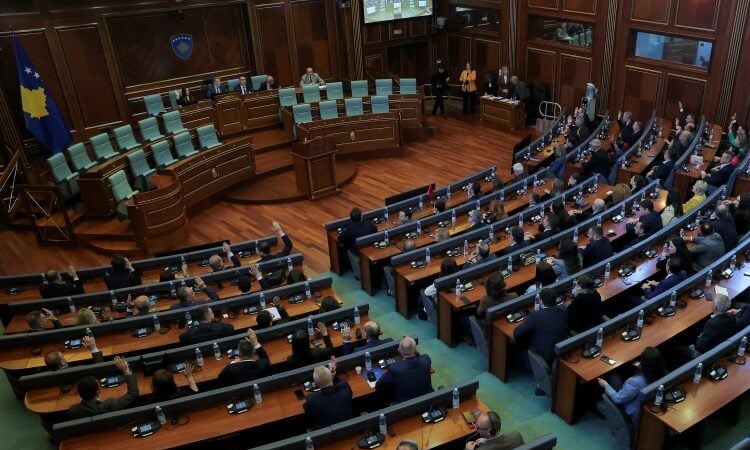
PRISTINA, June 11, 2025 (BSS/AFP) - For the thirtieth time, Kosovo MPs on Wednesday failed to constitute a new parliament by electing a speaker, leaving the nation without a government more than four months after the election.
Despite Prime Minister Albin Kurti's Self-determination party (VV) having won the February 9 election with 48 out of 120 seats, it was insufficient to form a majority government.
Insisting on the nomination of its candidate and former justice minister Albulena Haxhiu for the post of speaker, VV has not managed to obtain a minimum of 61 votes in parliament for her appointment as opposition parties refused to vote.
"Then, the session is adjourned and we'll see you on Friday," said Avni Dehari, who is chairing the parliament temporarily as the oldest MP.
According to parliamentary rules, the parliament cannot be considered inaugurated without a speaker, and without its inauguration a new government cannot be formed, creating a stalemate in the governance of the country.
On Thursday, the MPs failed to agree on the VV's proposal for a secret vote and due to lack of quorum, the session was interrupted. Kosovo's legal framework obliges parliament to meet every 48 hours until its inauguration.
VV MP Mimoza Kusari-Lila said that the problem is not the party's specific candidate for Speaker of the Assembly but its right to select the speaker, which is being contended by the opposing parties.
"It is not a matter of name -- it is a matter of principle," she added.
Memli Krasniqi, chair of the former leading opposition Democratic Party of Kosovo (PDK), said that VV "today showed extreme institutional irresponsibility".
"VV's stubbornness has brought us to this situation."
Leader of the Democratic League of Kosovo (LDK) Lumir Abdixhiku proposed the formation of an inclusive and transitional unity government to resolve the situation.
"I proposed it because the state is blocked. Because there is no functional assembly. Because there is no functional government. Because there is no legitimate representation."
The current deadlock could be costly for Kosovo and plunge it into even a deeper crisis, warned civil society groups, adding that the stand-off has delayed the ratification of agreements for EU's assistance, depriving the country of access to 882.6 million euros ($1 billion) in loans and grants.